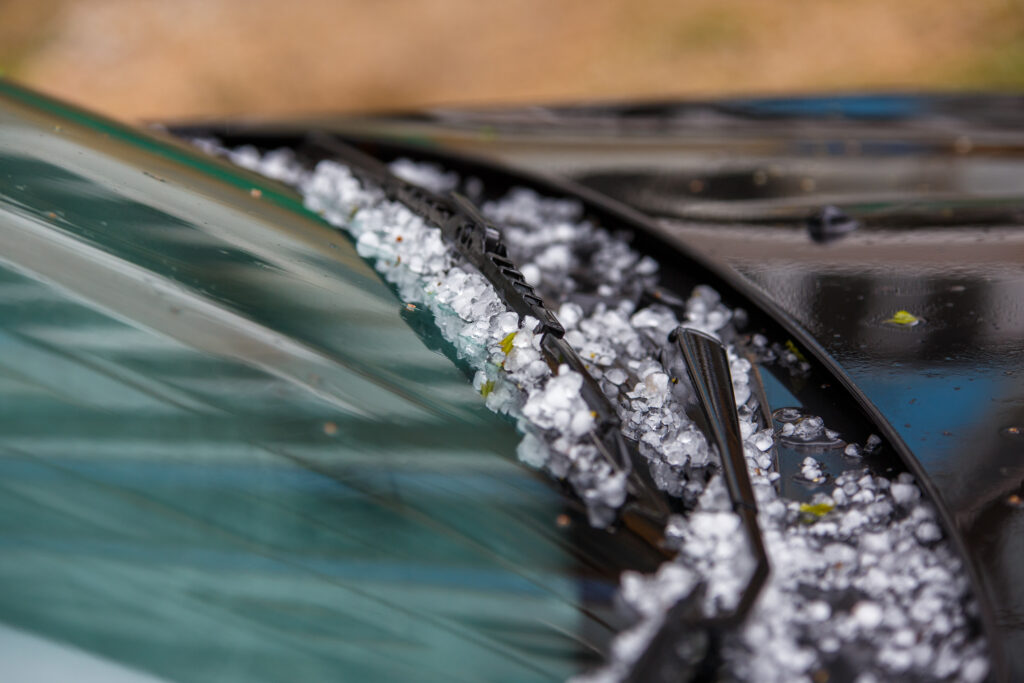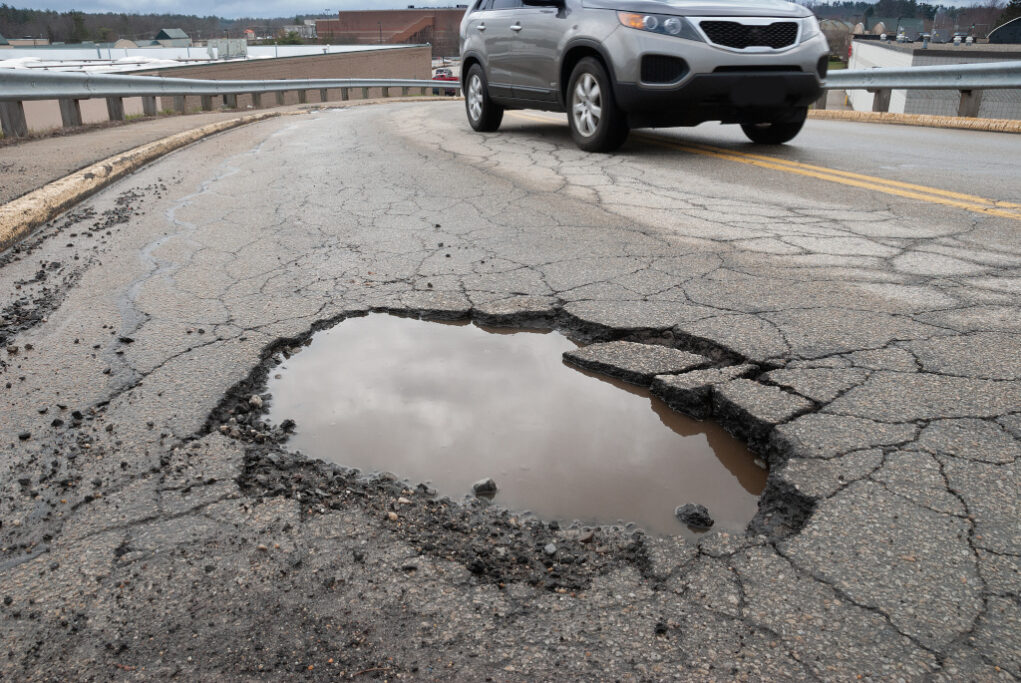Buying a new car can be a fun and exciting experience. But there are some things you should know when you’re looking to buy one. It’s going to affect your auto insurance. You might also be wondering whether you have coverage as soon as you drive it off the lot.
Most insurers will temporarily cover your new vehicle. This is so you can have enough time to add your new car to your auto insurance policy. Typically, this can last around four days. You should call your insurer or agent and ask them if they’ll cover you automatically when you go to buy your new car.
Buying a new car will also affect the type of insurance you’ll need to have on your policy. If you’re financing, your lender will likely require you to carry certain types of coverages to protect the car. You may also think about getting gap insurance to protect you from paying back the loan.
In this article, you’ll learn everything you need to know about insuring a brand-new vehicle. This will include breaking down what types of coverages you might need to have. It’ll also talk about what to do if you total a new car and how you can avoid having to pay back the entire loan.
Will I Have Insurance on My Car Right Away?
When you drive your car off the lot, you’ll want to know that you have coverage. But there’s no guarantee that you’ll have any insurance as soon as you buy it. Your insurer might handle your new car purchase a little differently than others. You should speak with your agent before you head to the dealer. This will help you avoid any issues when you’re buying the car.
In general, most insurers will cover your vehicle for a short period after you’ve just bought it. This is what many refer to as an insurance grace period. This temporary period is typically around four days after you buy the vehicle. It’ll give you about the same coverage as you have on your other cars. The grace period will allow you time to add the car to your policy and still be able to use it. This isn’t a temporary insurance policy, just an extension of your current coverage.
Even if you have a grace period, some dealerships won’t let you leave with your car without showing proper proof of insurance. This is mainly when you’re choosing to finance it. The dealership will have a monetary investment in the car if you’re financing it. This means they’ll want you to have certain types of coverage before you can drive it away.
It’s a Good Idea to Insure Your New Car Before Buying It
Your insurer will likely grant you a grace period. But you’ll still have to add the car to your policy anyway. Financing your new car can also complicate matters because you may not be able to leave with it until you get the coverage types that your lender wants you to have.
It’s a good idea to add the new vehicle to your policy before you buy it. You’ll need to call your agent and let them know you’re planning on buying a car. Then, just tell them you’d like to add it to your policy if possible. You’ll need to give your agent this info:
- The date the policy will start (be sure to make this the same as your purchase date)
- The car’s purchase price
- The vehicle identification number (VIN)
Note: your insurer might need more information from you about your new car or they may not even let you add it to your policy at all. Speaking with your agent will help you get more clarity on what you’ll be able to do.
You might also want to ask the dealer about what types of insurance they require you to have if you’re financing. This will help you avoid any issues on the day that you buy your car.
You Can Also Transfer Coverage
If you already have insurance for your old car, you’ll be able to easily transfer it to your new one. To do so, you’ll just need to let your insurer know so they can handle it for you. The grace period should allow you enough time to do this. Planning ahead and taking care of the transfer on your purchase date will help you avoid any extra stress.
State Insurance Requirements
All states except for Virginia and New Hampshire require you to have a certain amount of auto insurance to drive. But each state has its own minimum insurance requirements. The type of coverage you need and how much of it will change based on your state.
Here are the types of insurance that states often require:
Liability
Most states require a minimum amount of liability coverage to drive. This is the most basic form of auto insurance. It protects you from having to pay out of pocket for damages that you cause to another driver or party.
Liability protects you from property damage and bodily injury. These damages can usually amount to thousands, so liability is a big help to you and the other party. Property damage liability also includes other non-car objects, such as:
- Light posts
- Trees
- Fences
- Buildings and structures
Liability will not, however, pay for damage to your car. That’s what collision and comprehensive coverage pay to fix. When purchased together, these two coverages give you what’s referred to as full coverage.
Uninsured and Underinsured Motorist
Your state might also require uninsured and underinsured motorist (UM and UIM) coverage. UM and UIM will protect you from expenses that drivers with no or too little insurance cause. Accidents are often very expensive, and you could end up paying for the damages yourself without UM and UIM coverage.
Though, not all states require UM and UIM coverage. You should either speak with your agent or consult your state’s laws to see if you need it or not.
What Types of Insurance You Need When Financing New Cars
While your state might require you to have a basic amount of auto insurance, you might need more if you’re financing your new car. Dealerships want to make sure that their financial interests are secure. This means they’ll want you to geta full coverage car insurance policy.
Generally, dealerships will require full coverage if you’re financing. Full coverage isn’t a type of insurance. It’s another name for having both collision and comprehensive insurance on your policy.
Collision coverage takes care of any damages to your car that occur from an accident with another vehicle or object. It’ll protect you from paying in full for damages to your car. Collision includes accidents that don’t involve another vehicle. It also includes crashes that don’t involve any objects, such as a rollover accident.
Comprehensive coverage protects you from damages to your car due to a random event or “act of God.” These random events include:
- Natural disasters i.e., hurricanes, earthquakes, tornadoes, floods, hail
- Vandalism
- Theft
- Collisions with an animal
- Falling objects
- Riots or civil disturbances
- Fires
What Happens When You Total Your New Car
Financing your car makes you responsible for paying back the loan. But what happens when an accident totals your car? This can be a tough situation to be in. The short answer is that you’ll still have to pay the balance of your loan no matter what.
You’ll receive a payout equal to the vehicle’s actual cash value (ACV) if it becomes a total loss. Your new car depreciates as soon as you drive it away from the dealer. Couple this with the damages that an accident would cause, and your car probably isn’t worth nearly enough to pay back your loan.
This could mean you’d have to satisfy the debt yourself unless you have guaranteed asset protection or gap insurance. This add-on covers the difference between your loan and your car’s ACV. It’ll help you avoid paying any money out of pocket for the rest of the loan.
Insurance Discounts for New Cars
A vehicle purchase can qualify you for a new car discount. For instance, GEICO offers a “New Vehicle Discount” that can take up to 15% off of your insurance rates.
Also, adding another vehicle to your policy can get you a multi-car discount. This discount can knock anywhere from 4-25% off of your premiums. If you’re buying a new car but still keeping your old one, you should be eligible for this discount.
New automobiles also tend to have more safety features than old ones do. You should check with your insurer to see what safety feature discounts are available.
Frequently Asked Questions
Is insurance more expensive for new cars?
It’s possible that buying a new car can make your insurance more expensive. Insurers use the car you drive as a main factor in determining your rates. Per the Insurance Information Institute (III), here’s why your auto coverage might be more expensive with a new car:
- The cost of your car is high
- Repairs may cost more
- The vehicle isn’t as safe as others
- There’s a higher likelihood of theft
But you should also consider that the cost of your insurance will depend on many other factors. This includes:
- Marital status
- Annual mileage
- Your coverage levels
- Driving record
- Claim history
Can I add a car to my insurance policy online?
You should be able to add your new vehicle to your policy online. This will depend on your insurer and how robust their website is. But many insurer websites allow this.


